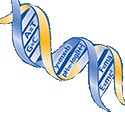UC President announces 2017 Research Catalyst Awards
University of California President Janet Napolitano today (Dec. 1) announced the 2017 recipients of the President’s Research Catalyst Awards, chosen from a pool of more than 100 proposed projects.
The three awards, totaling more than $2 million, involve faculty and students from across the university with lead campuses at UC Santa Barbara, UC Santa Cruz and UC Davis.
Napolitano launched the President's Research Catalyst Awards in 2014 to foster multicampus, interdisciplinary research in areas of strategic importance to California and the world. Since its inception, the program has provided nearly $10 million for research focused on climate change, cultural preservation, drought, basic science and more, and afforded research opportunities for 50 UC faculty, nearly five dozen graduate students and 20 undergraduates.
This year’s awards fund projects aimed at improving teacher training and student outcomes in California’s K-12 schools; enhancing knowledge of human health through paleogenomic research; and studying the effects of megafires on ecology and natural food webs.
“The state faces a serious teacher shortage, especially in math, science and other STEM fields,” said UC President Janet Napolitano. “This teacher training grant will create a statewide network that aims to put highly qualified teachers in every California classroom, for every subject.”
Recipients were selected following a highly competitive review process. A panel of experts evaluated applications based on scholarly merit and likely impact. President Napolitano selected the winners from among the top-ranked proposals representing all areas of university scholarship. The funded projects are:
California Teacher Education Research and Improvement Network ($1.5M)
Tine Falk Sloan, director of the Teacher Education Program at UC Santa Barbara, will lead a nine-campus research consortium focused on teacher preparation and training.
Working with the California Commission on Teacher Credentialing, the California State University System and the California Department of Education, the consortium will research the efficacy of teacher preparation programs; create an infrastructure for statewide data collection; and serve the state through research on policy implementation. It will also develop cross-campus doctoral programs in teacher education scholarship. By helping to develop research-informed policy and training in the K-12 arena, UC scholarship will also help inform national debates about improving academic outcomes across the U.S.
Genomic Prehistoric Human Population History and Health ($278K)
Anthropologist Lars Fehren-Schmitz will lead a project to expand the work being done by the UC Santa Cruz Human Paleogenomics Lab, with particular emphasis on graduate student training in this emerging field. By analyzing DNA from ancient humans, pathogens and other genomes, the lab looks to understand how the twin forces of culture and biology have shaped human genomic diversity, demography and health.
Megafires and Ecological Networks ($271K)
UC Davis conservation biologist Rahel Sollman will lead a project to study the impacts of megafires on the food web network and pollination networks. Better understanding of how megafires affect forest ecology is an increasingly urgent question in California and the western United States. Fire suppression, logging, drought and climate change are all contributing to the severity of fires across the western landscape. Sollman will lead an effort that draws on expertise at UC Berkeley, UC Davis and UC Santa Barbara and work closely with the U.S. Forest Service to analyze the ecological disruption of megafires and their impact on ecosystem integrity.
Funding for the Catalyst Awards comes from the UC president’s endowment funds, which support systemwide initiatives and projects. A list of previous awardees can be found at: http://ucop.edu/research-initiatives/programs/catalyst-awards/
